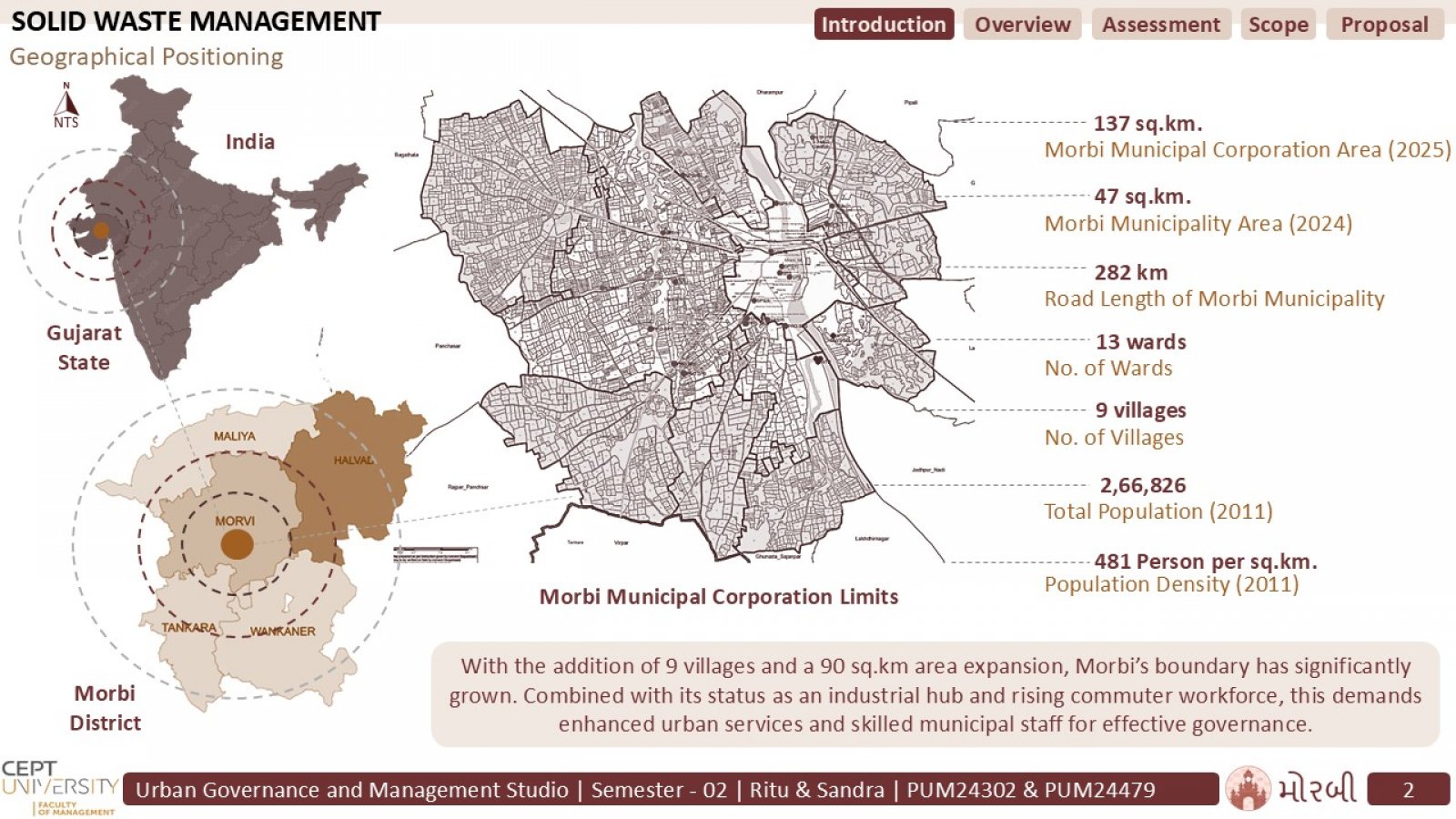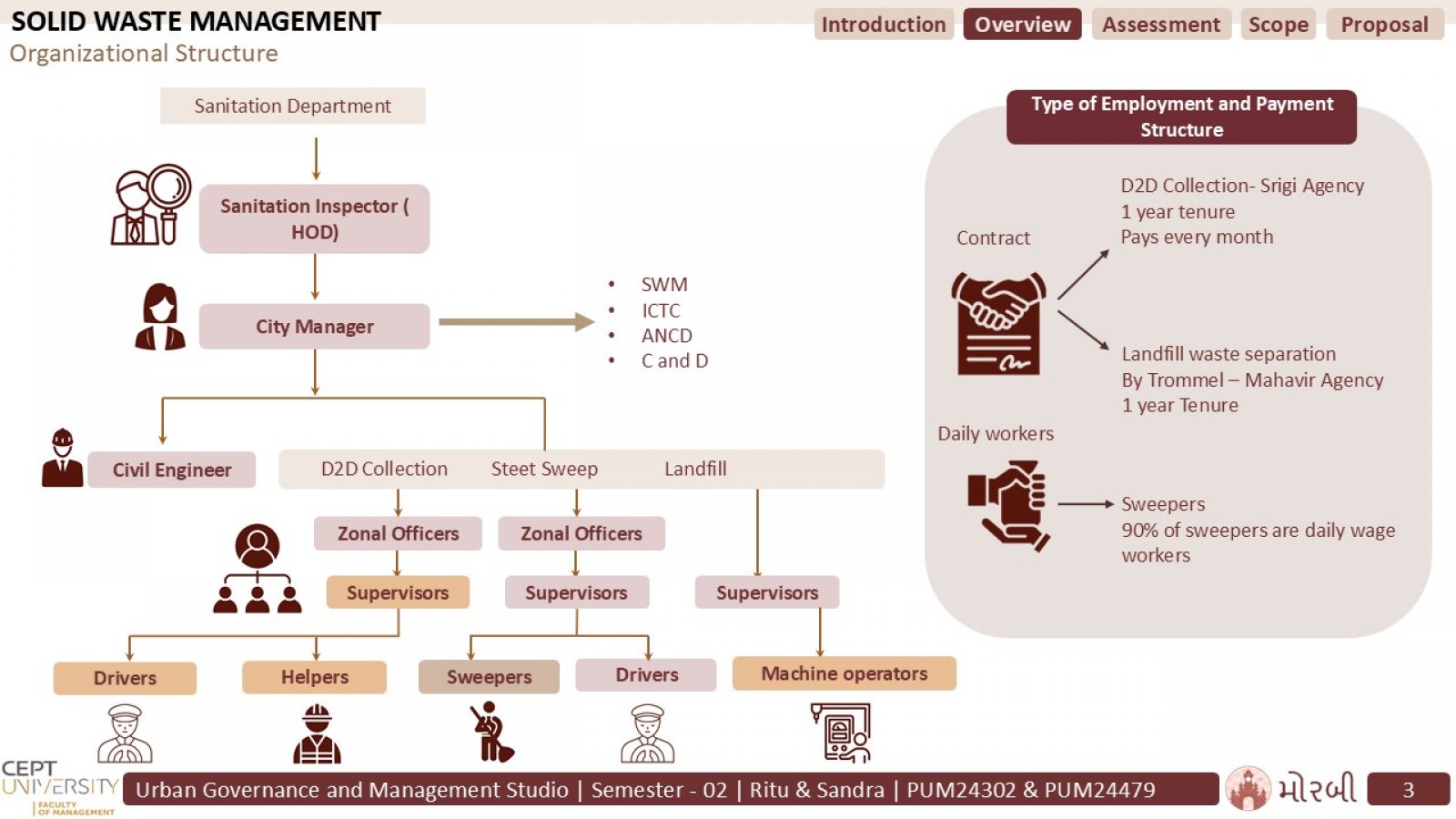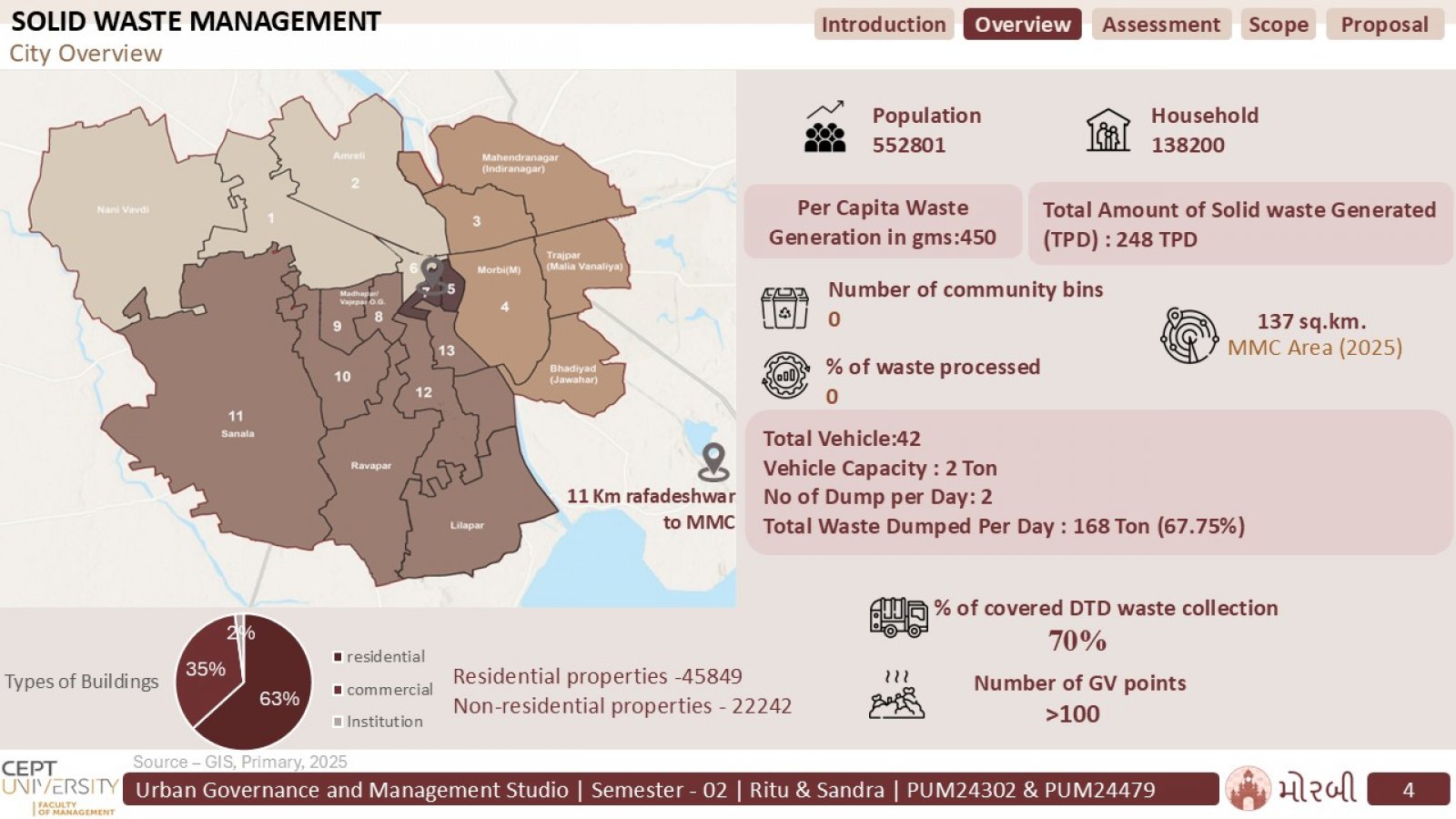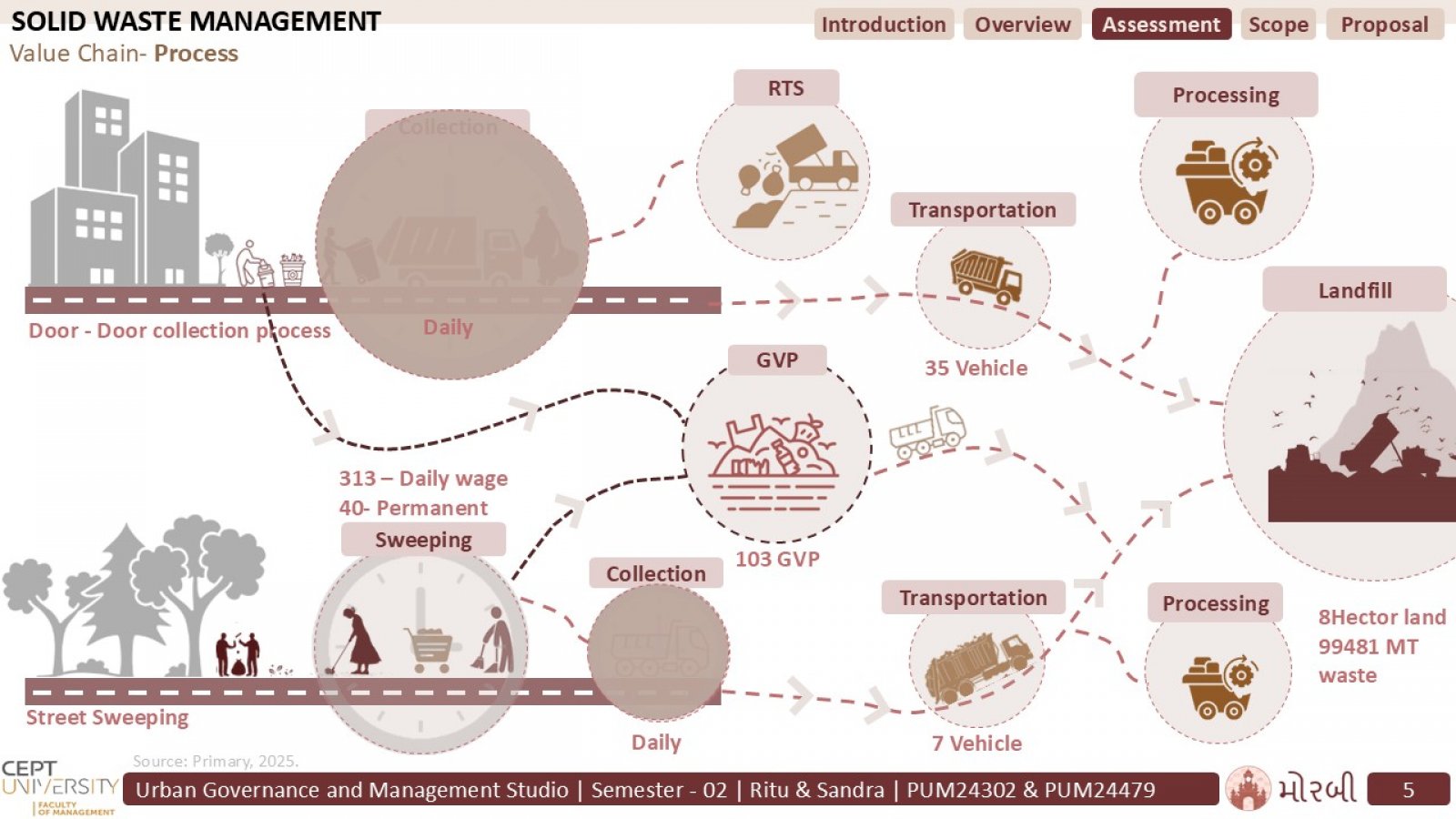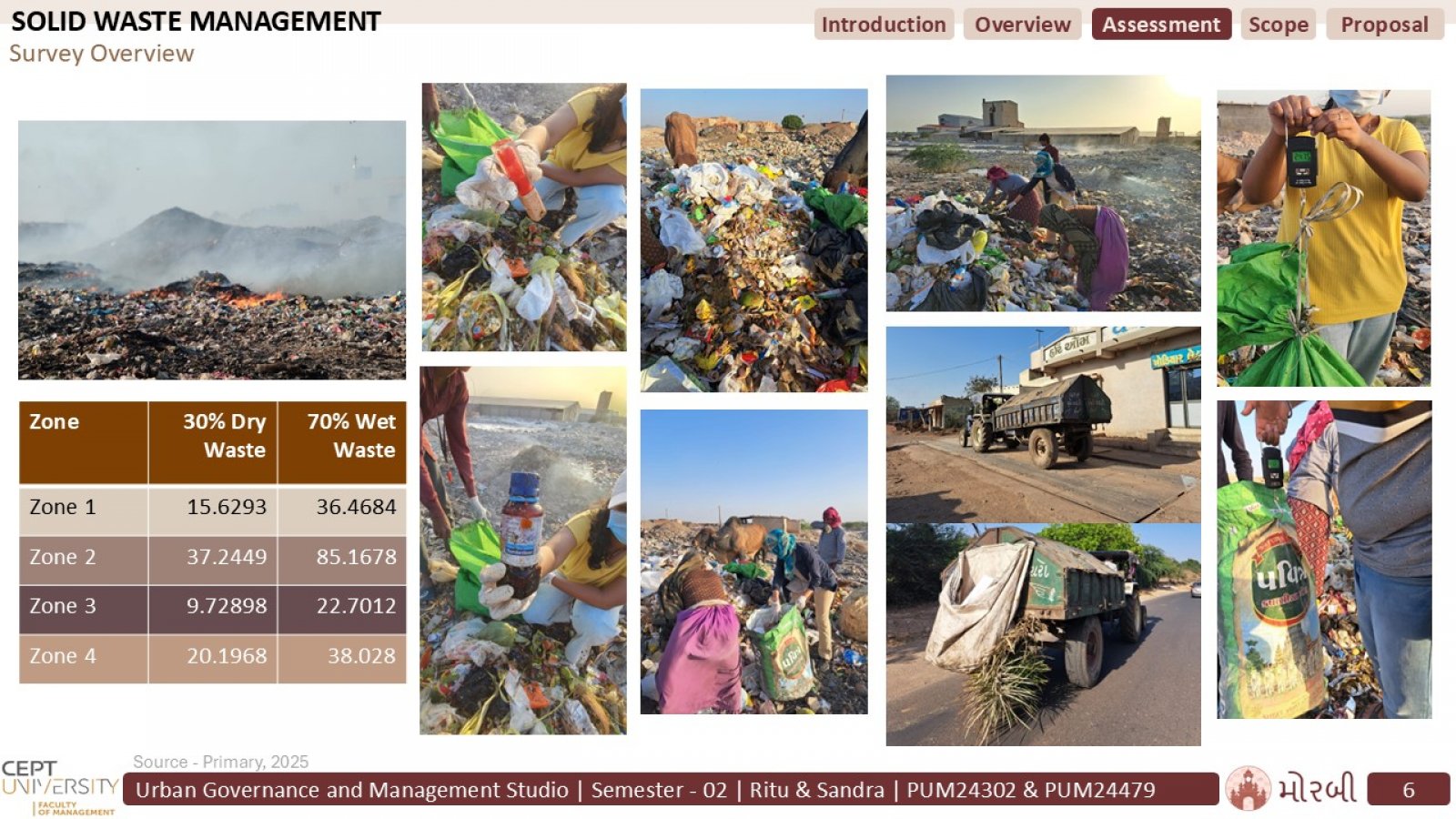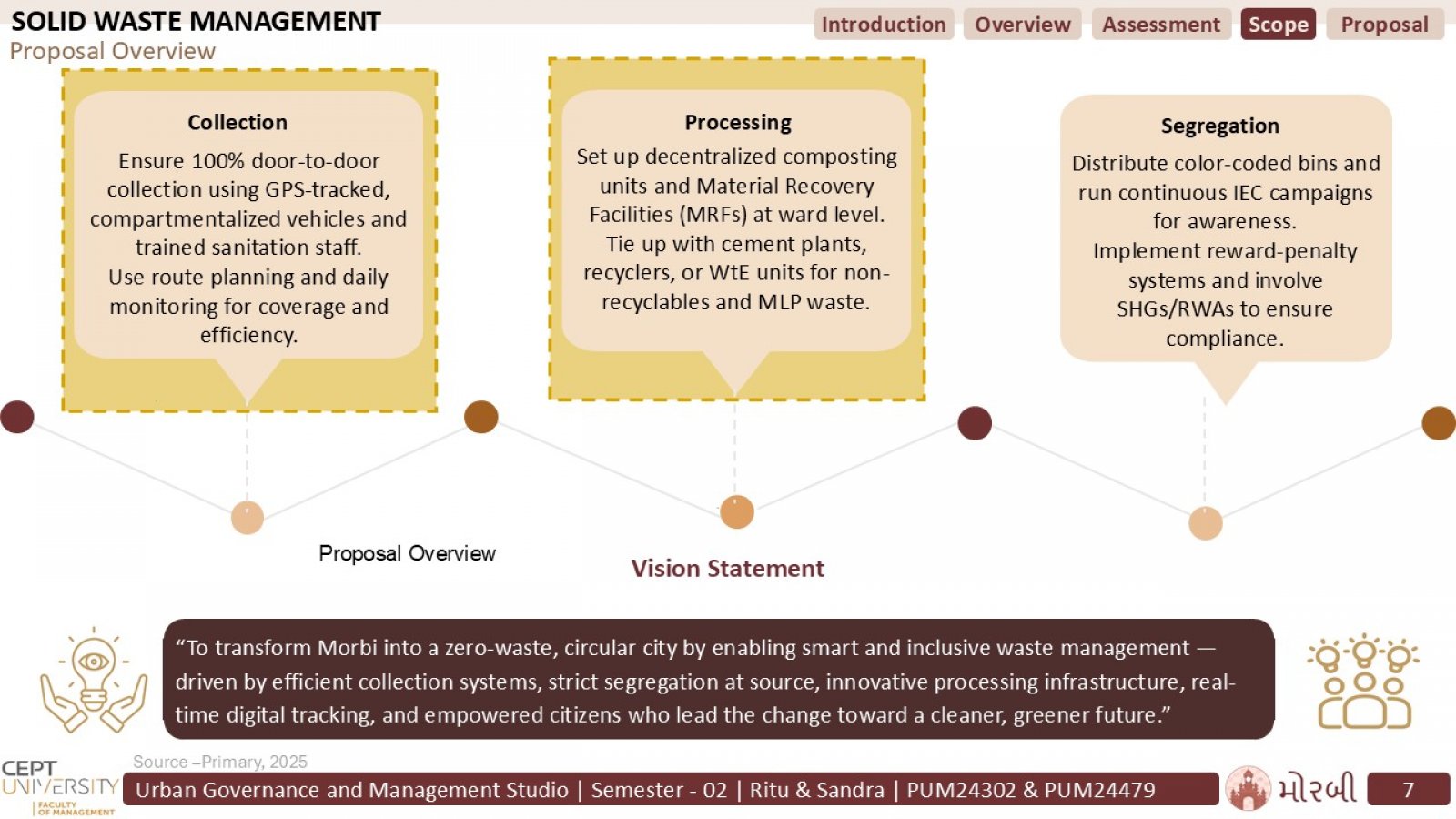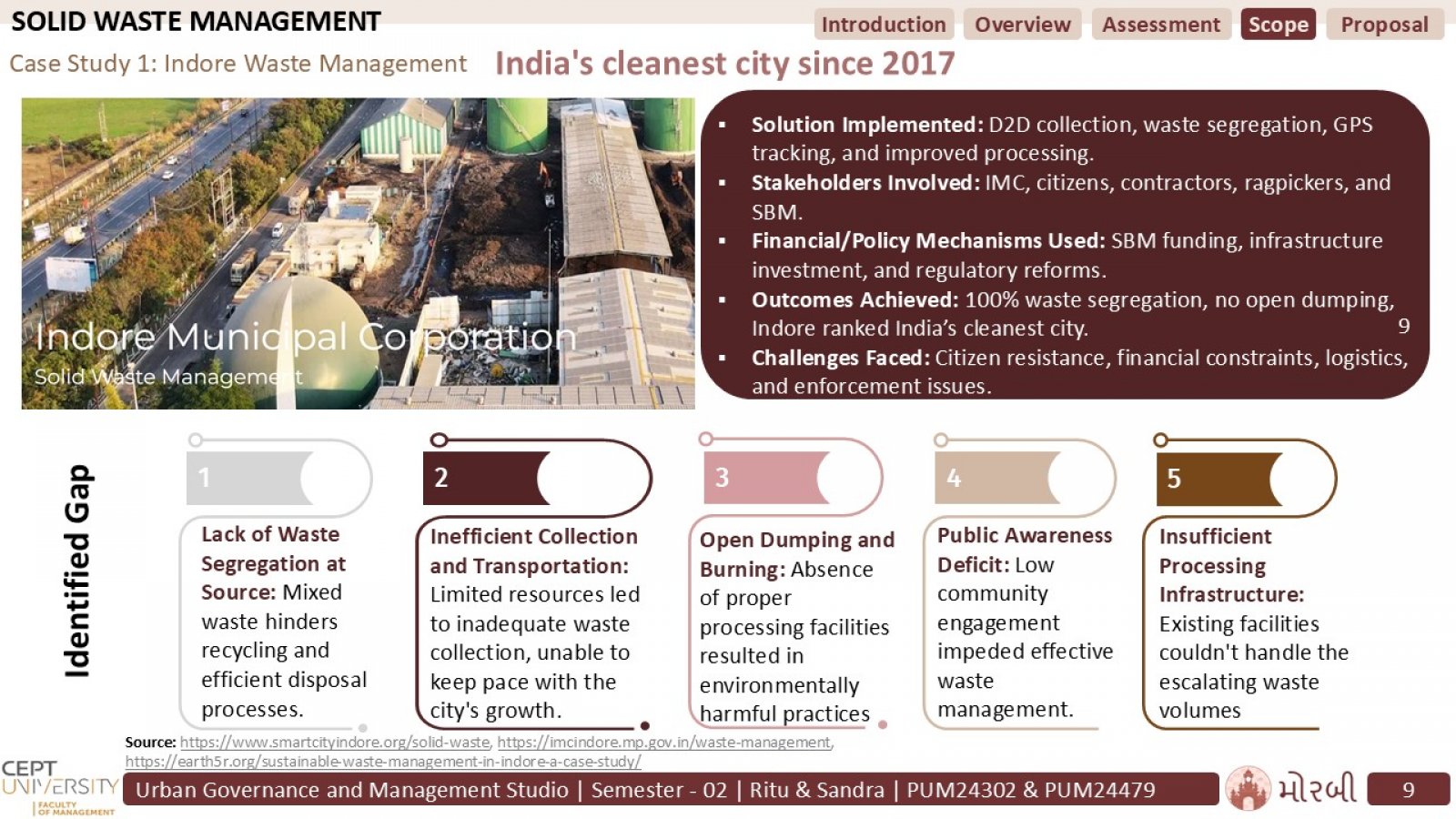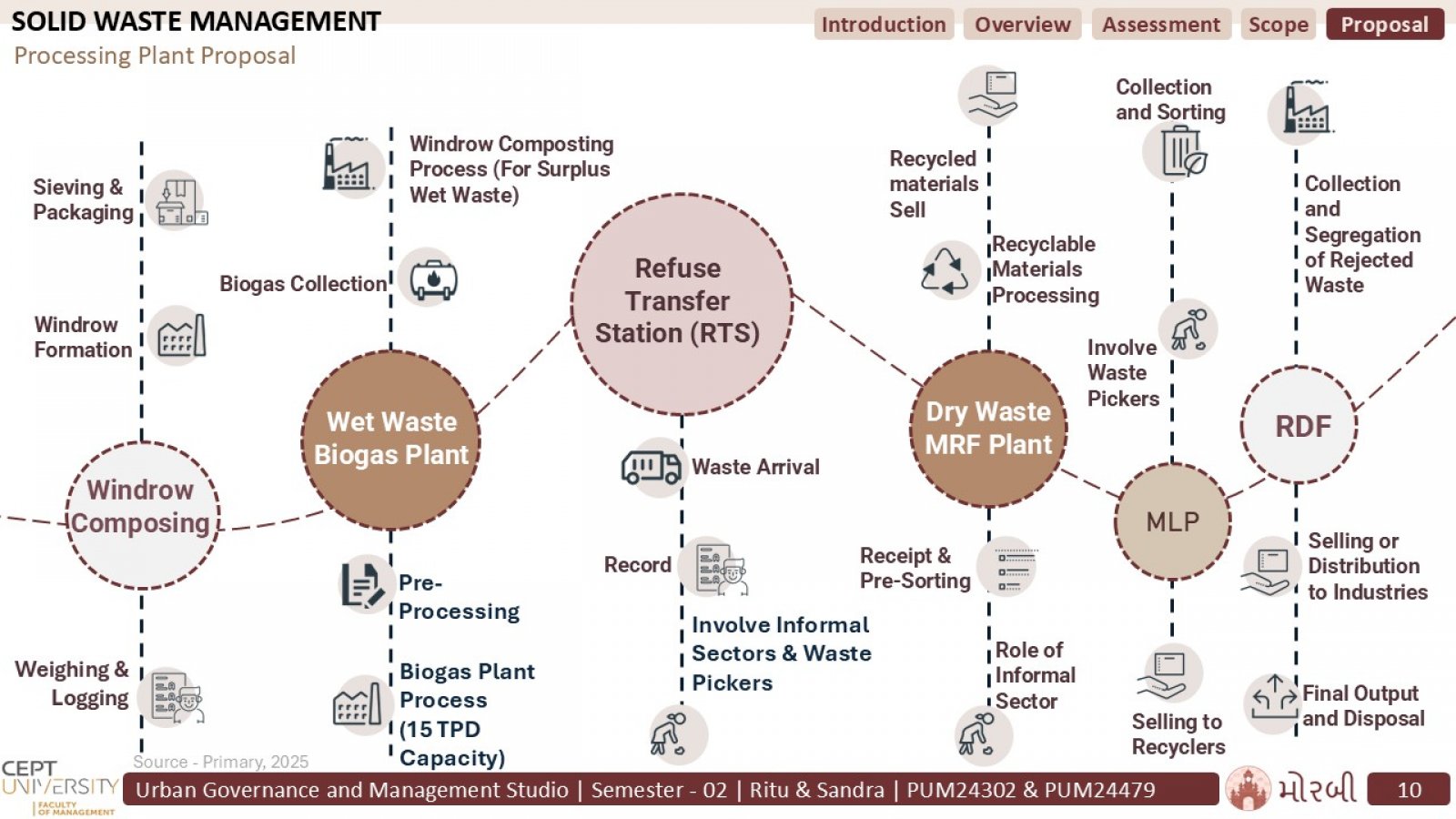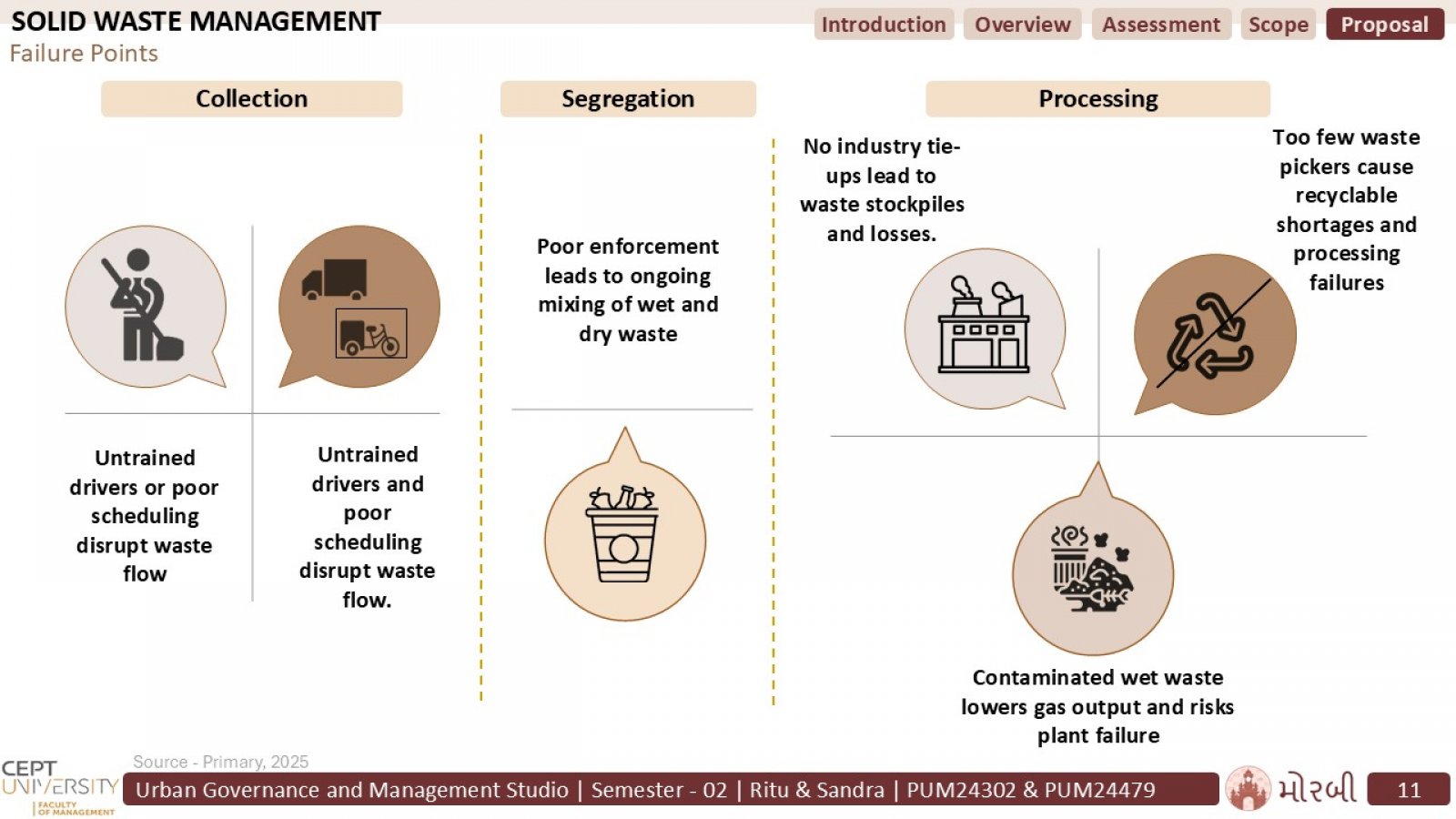Your browser is out-of-date!
For a richer surfing experience on our website, please update your browser. Update my browser now!
For a richer surfing experience on our website, please update your browser. Update my browser now!
The solid waste management project for Morbi envisions transforming the city into a zero-waste, circular economy through an integrated, citizen-driven approach. With a rapidly expanding urban footprint and increasing waste generation of 248 TPD, the proposal addresses the urgent need for efficient systems by restructuring Morbi’s waste value chain—from collection to processing. The plan prioritizes 100% door-to-door collection using pushcarts, elimination of garbage-vulnerable points (GVPs), and optimized routing for waste vehicles. Establishment of Refuse Transfer Stations (RTS) ensures swift secondary transfer, reducing haul time and improving efficiency. Central to the strategy is source-level segregation enabled through public awareness campaigns and incentive programs. Processing focuses on windrow composting for surplus wet waste, biogas generation from organics, and integrating informal workers for material recovery and recycling. Drawing insights from Indore’s success, the project emphasizes real-time tracking, community engagement, and decentralized processing infrastructure. It unfolds in phased implementation over one year—moving from short-term corrective actions to long-term sustainable operations. Ultimately, this initiative aims to build local capacity, improve environmental outcomes, and instill civic responsibility, positioning Morbi as a model for smart and inclusive waste management in rapidly urbanizing regions.
